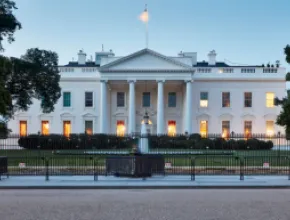Home-sharing properties are allowed in one out of every six travel polices (17 percent), according to a new study released by the GBTA Foundation, the research and education arm of the Global Business Travel Association. However, more than double the number of business travelers are under the same impression (37 percent), meaning many travelers are unsupported by travel policy in their home-sharing stays.
The study, Home-Sharing and Travel Policies – A Shifting Landscape, conducted in partnership with AccorHotels also revealed many companies are making an effort to review home-sharing options before making a decision to include or exclude them from travel policies. At organizations deciding not to allow these options, two-thirds of travel professionals either looked at these options before deciding not to include them (52 percent) or are currently reviewing them (13 percent).
“A travel professional must simultaneously balance his or her obligation to keep travelers safe with a need to make cost-effective decisions and select suppliers and services that foster productivity, while not compromising the well-being of the traveler,” said Kate Vasiloff, GBTA research director.
Travel professionals are most worried about the safety and security of home-share properties (87 percent), compared to 55 percent who have this same concern for traditional hotels. Similarly, three in five (61 percent) travel professionals are very concerned about the unpredictability of home-share property conditions, while about half as many say the same about hotels (33 percent).
Concerns over financial policies and reservation stability are next in line after duty of care issues. Travel professionals expressed concerned about home-sharing properties having nonrefundable deposits (58 percent, compared to 44 percent for traditional hotels), canceling reservations at the last minute (51 percent, compared to 36 percent) and enforcing strict cancellation policies (44 percent, compared to 35 percent). Ancillary but important offerings to business travelers, like reliable Wi-Fi (33 percent), inflexibility with check-in and check-out (28 percent) and lack of amenities (18 percent), are less of a concern to travel professionals.
Some home-sharing companies have begun tailoring their offerings to appeal to both concerns expressed by travel professionals and business traveler desires. This includes not allowing hosts listing their properties for business travel to cancel a reservation within seven days of check-in and requiring frequently-needed business travel essentials to be provided, like Wi-Fi, a laptop-friendly workspace and even an iron and hangers.
Two-thirds (61 percent) of travel professionals are very concerned about the current inability to collect traveler information during booking with home-shares. If home-sharing options were integrated into the GDS so traveler bookings could be tracked, one-half of travel managers (52 percent) say this would increase the likelihood of including these options in their travel policy for future business travel.
Methodology: The GBTA Foundation conducted an online survey of 147 travel professionals in the United States and Canada. The survey was fielded Jan. 31 – Feb. 10, 2017. The report, Home-Sharing and Travel Policies – A Shifting Landscape, is available to current GBTA members and non-members may purchase the report through the GBTA Foundation by emailing pyachnes@gbtafoundation.org.





